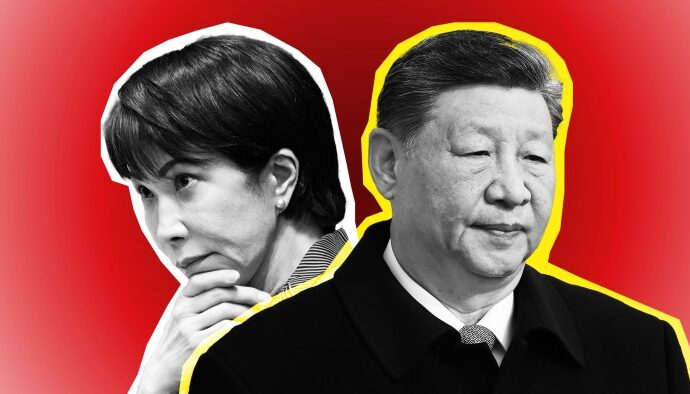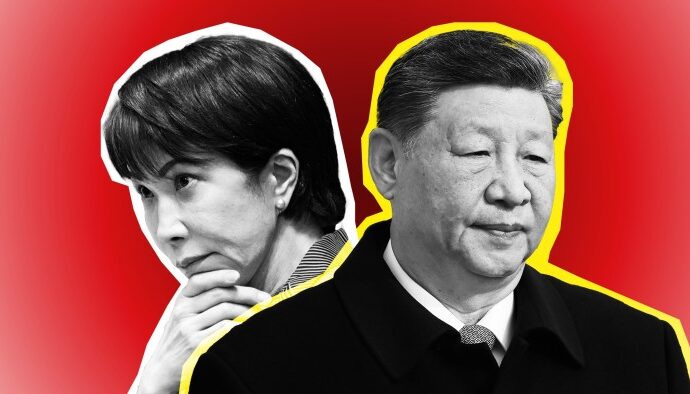Unlock the Editor’s Digest for free
Roula Khalaf, Editor of the FT, selects her favourite stories in this weekly newsletter.
Taiwan’s president Lai Ching-te has pledged to spend NT$1.25tn (US$40bn) on weapons over the next eight years, a plan that would constitute the country’s largest special defence budget in over 30 years and aims to enable it to “permanently” defend itself against China.
Lai’s announcement on Wednesday aims to demonstrate to Washington Taipei’s determination to pay for its own defences as US President Donald Trump’s erratic stance on China and demands that Taiwan spend up to 10 per cent of its GDP on defence have raised doubts over the commitment of the island nation’s main backer. China claims sovereignty over Taiwan.
“Faced with China’s escalating military threat and hegemonic ambitions towards the region and Taiwan, Indo-Pacific democracies such as Japan, South Korea, the Philippines and even Australia are gradually reaching a consensus on ‘island chain defence and shared responsibility’ investing more in defence and strengthening their response to the China threat,” Lai said.
“As the most important and crucial link in the defence of the first island chain, Taiwan cannot afford to become a gap in regional security. We must demonstrate resolve and assume greater responsibility for self-defence,” he added.
Lai said the country would accelerate plans to strengthen its defence capabilities to achieve “high combat readiness” of the military’s joint operations forces to effectively deter any threat from China by 2027. According to the US government, Chinese leader Xi Jinping has ordered the People’s Liberation Army to be capable of taking Taiwan by force by that year.
Lai set a second goal for Taiwan’s armed forces to build a “highly resilient and comprehensive deterrent defence capability” by 2033. “The final goal is to build capabilities that can permanently defend ‘democratic Taiwan’,” he added.
The special budget, which the government aims to implement from next year, will be drafted on top of the NT$949.5bn (US$31.1bn), or 3.32 per cent of GDP, earmarked for defence in the 2026 regular budget. Lai said he also aimed to meet an earlier pledge to raise defence spending to 5 per cent of GDP by 2030.
While the cabinet is still finalising the special budget draft, Lai singled out the construction of a layered advanced air defence system, which he has dubbed ‘Taiwan Dome’ in a reference to Israel’s air defences.
Defence minister Wellington Koo said the special budget would cover the acquisition of everything from precision artillery to anti-tank missiles, drones and counter-drone systems.
Another chunk of the planned budget would pay for joint development of defence equipment and systems with the US.
Lai said the multiyear spending plan would encompass strengthening Taiwan’s own defence industry.
But two Taiwanese defence officials and one US official said many of the items on Koo’s list were expected to translate into growing orders for arms purchases from the US, which has for decades been the country’s main weapons supplier.
Foreign attention is expected to focus on whether Taiwan’s opposition-controlled parliament will support Lai’s steep defence spending increases.
Although both opposition parties have said they back growing military expenditure, the legislature froze parts of this year’s defence budget, and the new chair of the Kuomintang, the leading opposition party, has said she opposes increasing defence spending.
The American Institute in Taiwan (AIT), the US’s quasi-embassy in the country, welcomed the announcement and said Washington supported Taiwan’s “rapid acquisition of critical asymmetric capabilities needed to strengthen deterrence”.
“The entire world has a stake in ensuring that differences across the Taiwan Strait are resolved peacefully and free from coercion,” AIT director Raymond Greene said in a statement. “Today’s announcement is a major step towards maintaining peace and stability across the Taiwan Strait by strengthening deterrence.”


